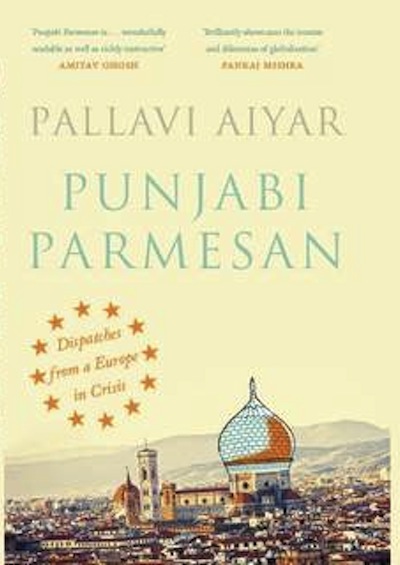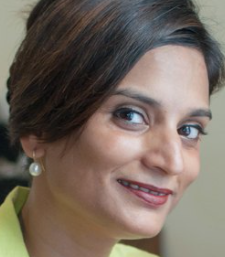Why Europe Leaves Me Puzzled
Reflections of a foreign correspondent from Asia upon leaving her post in Brussels.
May 18, 2014

If all the talk of “Europe’s decline” during my 3.5 years of reporting on the European Union as an Indian correspondent based in Brussels is on target, then this must actually have a very positive flip side – one that is surely worth celebrating. If Europe is “declining,” then other parts of the world that have long been deprived and marginalized must be rising.
And, if Europe is no longer as economically or strategically dominant in the world, to my mind that is surely something that Europeans themselves should welcome.
And if the “rise of the rest” means that Europeans now have to work somewhat harder for their money, they should accept this modest leveling out of global inequalities. It is, after all, a development in keeping with the values that Europe claims to espouse and wants to universalize – those of solidarity and social justice.
In my time in Brussels, I found it hard, too, to understand Europeans holding anti-immigrant sentiments. After all, they live in a region with shrinking demographics. Or why they would feel compelled to censure India and China for their carbon emissions while sitting in heated rooms well stocked with bottled water. Or more generally, they so resented hard work.
Across much of Europe, the greatest privilege of all — that of less work — is the one that seems to have the greatest popular support. This is reflected in the deep-seated anger against economic migrants who might work for longer hours and at less pay than the local population.
A satirical conclusion
My somewhat satirical conclusion? In countries like India and China, what people really want is the right to work. In Europe, it is the right to holiday that is the goal.
Over time, I was able to understand how this first world “crisis” must feel to those experiencing it. It is obviously harder to give up something than to make do without something one has never had. Comforts and privileges are normalized with remarkable ease. And for a generation that has no living memory of another reality, letting go of them is a tough ask indeed.
From 2010 onward, as the eurozone crisis came to a boil, it was increasingly evident, even to a skeptic like me, that the anxiety in European policy circles and the protests on the streets were not just a case of the whining of a poor little rich boy.
The crisis sharpened and hastened the downward trends that had already been set in motion by the gradual eastward shifts in economic power over the last two decades.
As a result, Europe is going to have to find answers to tough questions like how far democracies are able to swallow unpopular diktats from without — whether from the IMF, Brussels or Berlin.
The EU – not easy to like
The EU is not an easy thing to love for a reporter covering its day-to-day functioning. Gray eurocrats and righteous parliamentarians, endless procedure and toothless resolutions, regulations standardizing the curvature of fruits and the use of incandescent lights at fairgrounds did not make for passionate attachment.
And yet, the alternative is chilling. A Europe in crisis is a smorgasbord of unsavory tendencies — from xenophobia and protectionism to the reassertion of tribal nationalistic identities.
Ballooning unemployment, economic stagnation, eroding trust in political institutions are not developments that can be contemplated with complacency. This is especially so, given Europe’s history of civil war and devastating ideologies like fascism.
When people feel under siege, they lash out. They find scapegoats in every corner — from immigrants and Muslims to foreign investment and globalization. In this atmosphere, tolerance and empathy are usually the first casualties. That is no different in India today.
It matters greatly
So far at least, the European Union has managed to keep in check the fear, prejudices and violence that had for centuries characterized relations between these often warring empires and states.
The ideas embedded in the European Union — of inclusion, openness, peace and prosperity — are profoundly important.
Yet, the actual workings of the EU institutions are lacerated with duplicity and hubris. And they are weighed down with a ponderous penchant for process, reflecting all the common traditions of the French and the German bureaucracies.
But still, its essence is as precious as it is fragile. It needs nurturing and commitment and vision to see it through. The pitfalls that the eurozone crisis and the challenges of a more multipolar, globalized world have opened up are no doubt momentous and a true test of Europe’s mettle.
It may be tempting, but it does the rest of the world no good to indulge in schadenfreude at Europe’s woes. A besieged Europe is not only bad news for the world’s economic health, as slowing growth in India and China attest.
It is also a blow to the very idea in which humanity’s great hope rests. That hope concerns the possibility of a renewed world, one which is not condemned to repeat history’s mistakes. We all need a world that proves capable of breaking out of destructive patterns of exclusion and hatred – and that weaves together that fabled unity out of diversity.
Editor’s note: This essay is adapted from “Punjabi Parmesan: Dispatches from a Europe in Crisis” by Pallavi Aiyar (Penguin Books India, 2013). Reprinted by arrangement with the author.
Takeaways
The EU is not an easy thing to love for a reporter covering its day-to-day functioning.
A Europe in crisis is a smorgasbord of unsavory tendencies— from xenophobia and protectionism.
In India and China, people really want the right to work. In Europe, it is the right to holiday.
The core ideas embedded in the European Union — inclusion, openness, peace and prosperity — do matter.
The EU’s essence is as precious as it is fragile. It needs nurturing, commitment and vision to see it through.
Europe’s example offers the hope of a renewed world not condemned to repeat history’s mistakes.
Read previous

India as an Inspiration for Europe?
May 18, 2014
